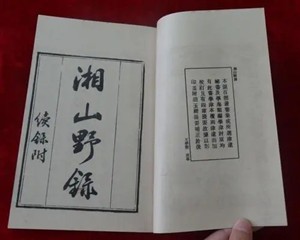古代寓言原是民间口头创作,文学体裁的一种。含有讽喻或明显教训意义的故事。它的结构简短。主人公可以是人,可以是动物,也可以是无生物。多借用比喻手法,使富有教训意义的主题或深刻的道理在简单的故事中体现,而还需要自己去理解,思考,这就是和西方寓言的不同之处。

《古代寓言·老规矩》
杨叔贤郎中异,眉州人,言顷有太守初视事,人排乐。乐人口号云:“为报吏民段庆贺,灾星移去福星来!”守大喜,问口号谁撰,优人答曰:“本州自来旧例,止此一首。”
——《湘山野录》
Old Custom
A newly-appointed prefect was giving a grand banquet for the local gentry with many musicians to entertain the party. In the midst of the revelry, a singer intoned: "Out with the old, in with the new; out with the evil star, in with the lucky star!"
The prefect was highly flattered.
"Who composed that?" he asked.
"It is an old custom in our town to sing this when a new prefect arrives. It is the only couplet I know," replied the singer.
Xiang Shan Ye Lu
(杨宪益、戴乃迭 译)
更多精品翻译素材,敬请关注可可英语。











